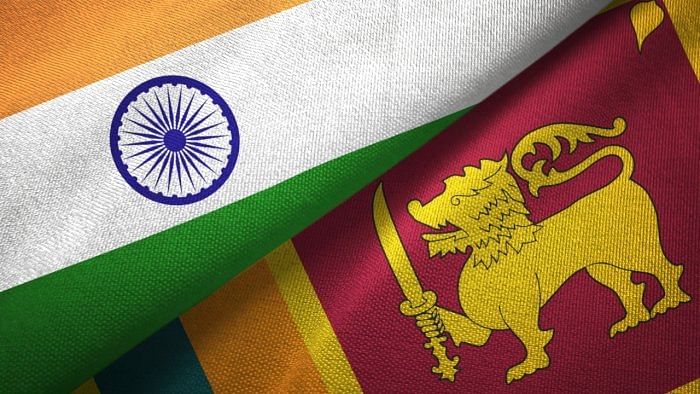
Representative image.
Credit: iStock Photo
Sri Lanka’s sole international agreement addressing the ethnic issue involving Tamils and the Sinhala majority was the Indo-Sri Lankan Accord of 1987. This accord holds significance for India, as then-Indian Prime Minister Rajiv Gandhi proposed the 13th Amendment to Sri Lanka’s constitution. This document was regarded as sacred by moderate Tamils, marking the first time the Tamils were recognised as a nation, and accepted by the Sri Lankan State. The accord, signed in July 1987, remained operational until the departure of the Indian Peace Keeping Force (IPKF) from Sri Lanka in 1990.
The 13th Amendment introduced a provincial council system elected by the people and devolution of powers over areas such as land, police, education, health, agriculture, housing, and finances to the nine provinces of Sri Lanka. It also established Tamil as an official language and set up a federal structure.
In 1987, the North and Eastern provinces were merged to form the North-Eastern Provincial Council. Elections were held, and a Provincial Chief Minister was elected. However, in 2007, the Sri Lankan Supreme Court demerged these provinces, creating two separate provinces, the North and East.
Sinhala parties saw the 1987 accord as an imposition of Indian intervention and the extension of Indian hegemony in Sri Lankan matters. Successive Sri Lankan governments have refused to part with land and police powers due to concerns that Tamils might gain control over these aspects in Tamil-dominated areas.
Several Sinhalese parties, including Janata Vimukthi Peramuna, the National Freedom Front, and Jathika Hela Urumaya, continue
to call for scrapping the amendment, fearing its potential to destroy the unitary structure with a powerful central government.
The Liberation Tigers of the Tamil Eelam (LTTE) and many Tamil political leaders rejected the 13th Amendment, claiming they were not consulted even though they were parties to the conflict and continuing to state that enough power had been devolved to the provincial councils.
The full implementation of the 13th Amendment, which was conceived by India, has been consistently advocated by successive governments in India, irrespective of their ideologies, on any given occasion, against the wishes of the majority of the Tamils. In the last week of July 2023, when the President of Sri Lanka, Ranil Wickremasinghe, was on a state visit to India, the Indian Prime Minister spoke at length about the implementation. Ranil, too, assured its full implementation.
India believes that the 13th Amendment is the starting point for any peace process to bridge the ethnic divide between the disgruntled communities. At the UN Human Rights Council too, since 2012, when the first resolution was passed against Sri Lanka, India has wanted the full implementation of the 13th Amendment, which would pave the way for the treatment of Tamils as equal citizens of Sri Lanka, enjoying full liberty, equality, justice, development, peace, dignity, and power sharing at the province level.
Ranil assured the Indian leadership that he would convince all sections of society and implement it. After the economic breakdown of Sri Lanka, India has reached out to Sri Lanka and funded them heavily, replacing the Chinese. The process of digitalizing their national identities on the lines of the Aadhar card in India is the latest project to be funded by India.
A large number of contracts awarded to the Chinese that were struck due to the inability of the Sri Lankan government to repay them have been taken up by the Indians.
Before the Indian visit, Ranil had met the Tamil leaders, who had categorically rejected the 13th Amendment as the Sri Lankan government wanted to implement it without police power and control of land. Sri Lanka has never been serious about implementing the accord in Toto and has been using this as an instrument to fuel speculation among both the Tamils and Sinhalese.
The Tamil diaspora and the refugees living in the refugee camps of India are looking forward to a comprehensive package that accepts their demand for an international inquiry, the setting up of a Peace and Reconciliation Commission on the lines of South Africa, demilitarisation, and the return of civilian land to the Tamils, along with a compensatory package for the war victims.
This would pave the way towards contributing to a strong Sri Lanka through peace dividends and a powerful economy where the Diaspora will surely pump in money from the west, leading to a path of progress benefiting all sections of Sri Lankan society.
(The writer is Principal, St Joseph’s Evening College (Autonomous))